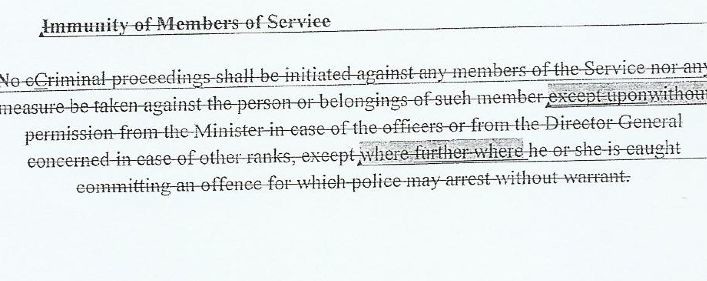Under a new National Security bill, officers and personnel of South Sudan’s National Security Service will not be immune from criminal prosecution, according to members of parliament (MPs) and the text of the new bill.
A previous version of the bill included a provision that “No criminal proceedings shall be initiated against any members of the Service… without permission from the Minister in case of the officers or from the Director General concerned in case of other ranks.”
That provision, Article 52 in the previous draft, has now been struck entirely from the latest version of the bill.
“They are not immune from prosecution,” said MP Paul Mayom, a member of the Defense, Security and Public Order Committee, referring to security personnel.
Mark Nyipuoc, the deputy speaker and another ruling party member, likewise confirmed that the bill was revised to remove the immunity provision: “A lot of changes have been made. If you have read the new bill, you find a lot of differences.”
“The immunity of the security personnel has been removed. They no longer have immunity now,” said the deputy speaker.
Paul Mayom also said that new mechanisms will be put in place to ensure operatives do not abuse their powers, pointing to plans to establish a legal department and a board to receive public complaints.
The parliamentarian said also that someone who is not satisfied with the work of the complaints board can take his grievance to a court of law: “There is also a board to look into complaints and if someone is not satisfied with the work of the board, there is another room for appeal to the high court,” he said.
MPs voted on the bill on Wednesday afternoon. Some members of the ruling party claim that the bill was passed unanimously, while others claim that a quorum was not reached, causing the vote taken that day to be invalid.
Related:
Document: South Sudan’s revised National Security Bill (10 Oct.)




